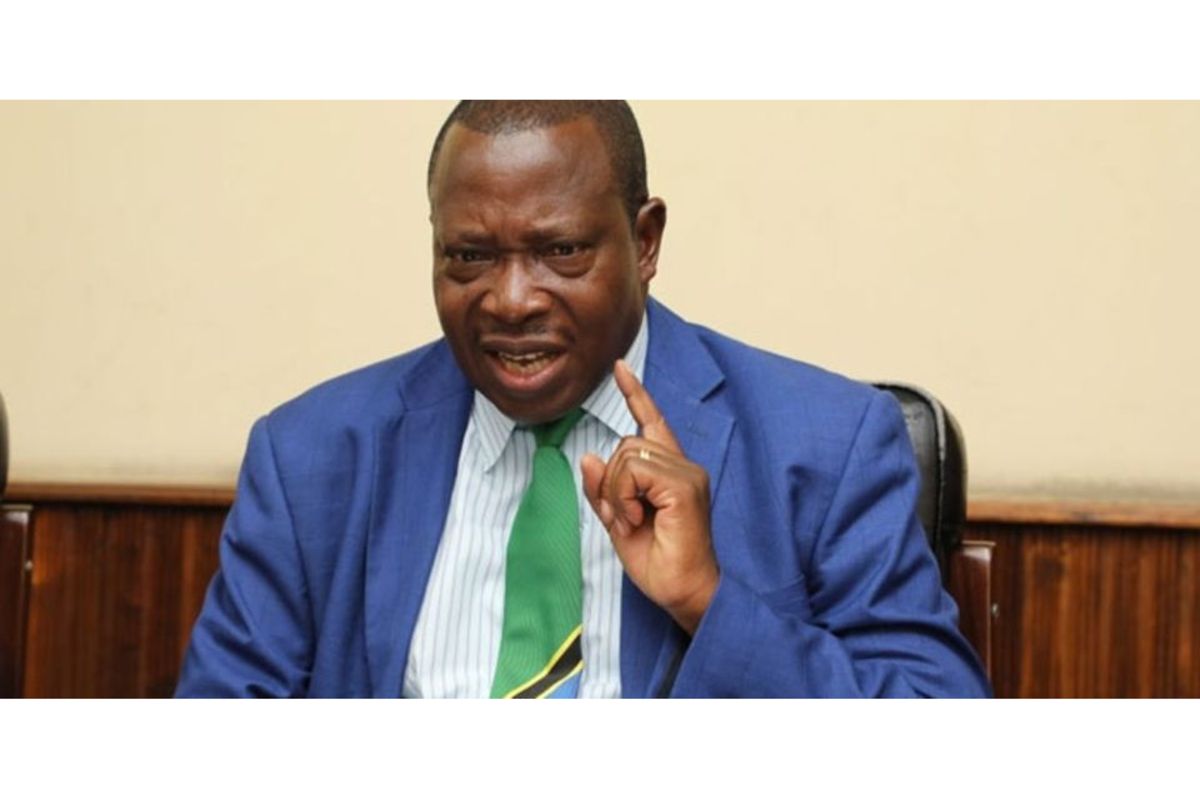
Dar es Salaam, Tanzania:
Members of the business community are cautiously hopeful about the business climate in 2023.
They believe the future is bright, but only if the government maintains its momentum in establishing an enabling business environment. The efforts in creating a friendly business environment, according to them, should be reflected in addressing the challenges ranging from unfriendly taxation system to bureaucracy in issuance of permits.
Confederation of Tanzania Industries (CTI) Vice chairman Hussein Sufian told this the national media a few days ago that the government’s efforts to create a welcoming environment for investment were strengthening investor confidence.
“The future is even brighter if the government will speed up the execution of the blueprint for regulatory reforms,” Mr Sufian cautiously exuded his optimism.
Vice President Philip Mpango was earlier in last month quoted as saying the execution of the blueprint, which started on July 1, 2019, had only reached 13 percent, a pace that forced him to direct the authorities to pull up their socks.
He directed minister for Investment, Industry, and Trade, Dr Ashatu Kijaji, to ensure that the blueprint is implemented to at least 50 percent by December this year.
The Tanzania Private Sector Foundation (TPSF) is positive the government will work on the pending issues that are impeding investments.
TPSF director of policy, advocacy and membership management Zachy Mbenna cautiously expressed his optimism that the year 2023 will be better than the preceding one, banking his hopes on the new Investment Act 2022.
It should be remembered that the parliament approved the bill for the new Investment Act, 2022, in November 2022, with the goal of creating a predictable business environment. The new Act replaces that of 1997 that seemed to have some shortfalls and thus impeding investments.
“If the new law is to yield tangible fruits, the government needs to be proactive in taking down to the institutional level the agreed aligned policies and regulations for the quick implementation,” advised Mr Mbenna.
Tanzania Chamber of Commerce, Industry and Agriculture (TCCIA) executive director Nebart Mwapwele sees the light at the end of the tunnel as the government is working to revamp the private sector.
“We are expecting a more friendly business environment that will lead to the growth in businesses and rise in investments as the country keeps on opening up,” he recounted.
Tanzania Business Community director for communications Stephen Chamle said by the look of things, 2023 will be the year for the government to remove or cut more barriers to trade.
This, he said, will attract more investors, both local and foreign ones. “We need the government organisations or institutions to be more of facilitative than frustration to businesses and we are happy that the government is currently trying its best to do so,” said Mr Chamle.
However, he opined, the government should protect local investors by creating a favourable business environment for them.
“Foreign investors should be welcomed for mega investments and not vending—the same business done by locals,” recommended Mr Chamle.
In a swift rejoinder, Investment, Trade and Industry deputy minister Exaud Kigahe said once the bill for the new Investment Act signed by the President into the law, it would address more challenges impeding businesses.
“We are determined to increase local investors’ participation, but without segregating foreign investors,” said Mr Kigahe.
He said to speed up the execution of the blueprint, his ministry formed a special department specifically for coordinating the implementation of the document.
“The department will officially start operations during the 2023/24 financial year. We are committed to creating a conducive business environment,” insisted Mr Kigahe.
Share this news
This Year’s Most Read News Stories

US taps Tanzania for infrastructure plan in battle with China for minerals
Washington wants to tap into the country’s minerals, particularly its nickel mines.Continue Reading

Tanzania Declares Marburg Outbreak – Africa CDC Mobilizes Immediate Response

Addis Ababa, January 20, 2025</Strong> — Tanzania has declared a Marburg virus disease (MVD) outbreak after confirming one case and identifying 25 suspected cases in the Kagera Region of Northwestern Tanzania. The Marburg virus, a highly infectious and often fatal disease, is similar to Ebola and is transmitted to humans from fruit bats and monkeys. This outbreak marks the nation’s second encounter with the deadly virus, following the outbreak in Bukoba District of Kagera Region in March 2023, which resulted in nine cases and six deaths.
In response to this urgent threat, the Africa CDC is mobilizing strong support to help Tanzania contain the outbreak. A team of twelve public health experts will be deployed as part of an advance mission in the next 24 hours. The multidisciplinary team includes epidemiologists, risk communication, infection prevention and control (IPC), and laboratory experts to provide on-ground support for surveillance, IPC, diagnostics, and community engagement.
The Director-General of Africa CDC, Dr. Jean Kaseya, has engaged with Tanzania’s President Samia Suluhu Hassan and the Minister of Health to ensure coordinated efforts and secure political commitment for the response.
“Africa CDC stands firmly with Tanzania in this critical moment. To support the government’s efforts, we are committing US$ 2 million to bolster immediate response measures, including deploying public health experts, strengthening diagnostics, and enhancing case management. Building on Tanzania’s commendable response during the 2023 outbreak, we are confident that swift and decisive action, combined with our support and those of other partners, will bring this outbreak under control,” Dr. Kaseya stated.
Africa CDC has recently supported efforts to enhance the diagnostic and sequencing capacity of public health laboratories in Tanzania. PCR Test kits and genomic sequencing reagents have been dispatched, with additional supplies in the pipeline. To ensure rapid identification and confirmation of cases, the institution will also provide technical assistance to strengthen detection and genome sequencing for better characterization of the pathogen. Additionally, support will be provided to improve case management protocols and enhance the capacity to deliver safe and effective treatment.
Africa CDC is committed to working closely with the Government of Tanzania, regional partners, international organizations, and global stakeholders, including the World Health Organization, to stop the spread of the Marburg virus.
Source: allafrica.com

Shock waves hit Zanzibar’s Real Estate industry
The revocation of British developer Pennyroyal’s leasehold for the construction of Blue Amber Resort by the Revolutionary Government of Zanzibar has sent shock waves in the nascent property market on the Isles.Continue Reading










